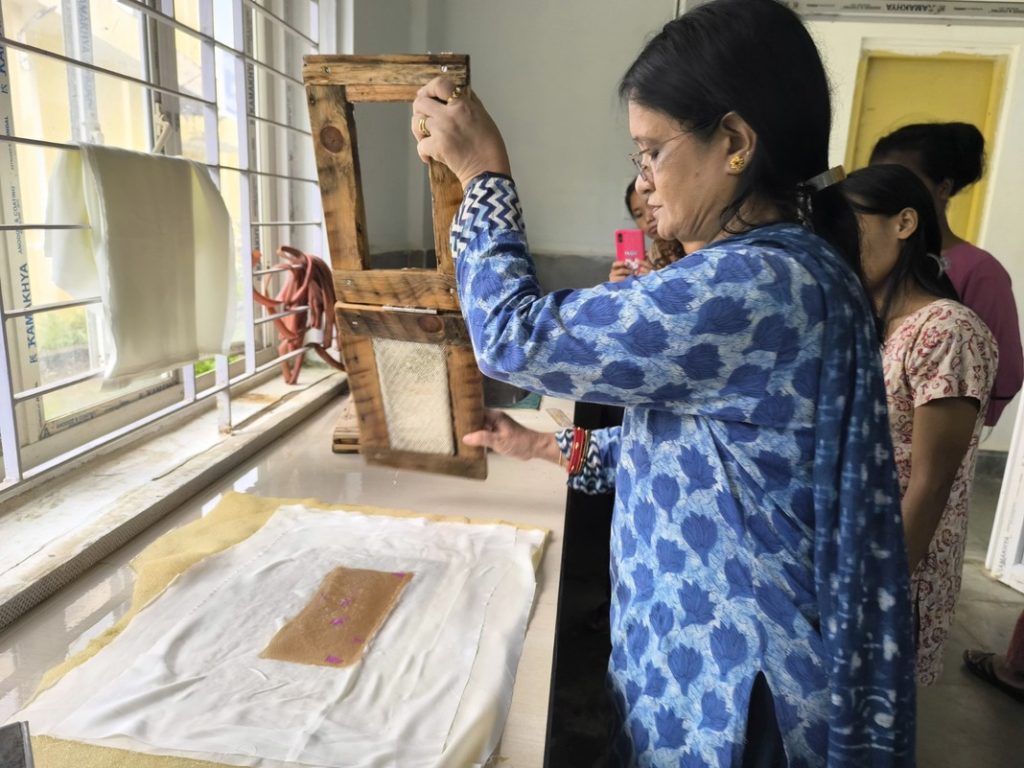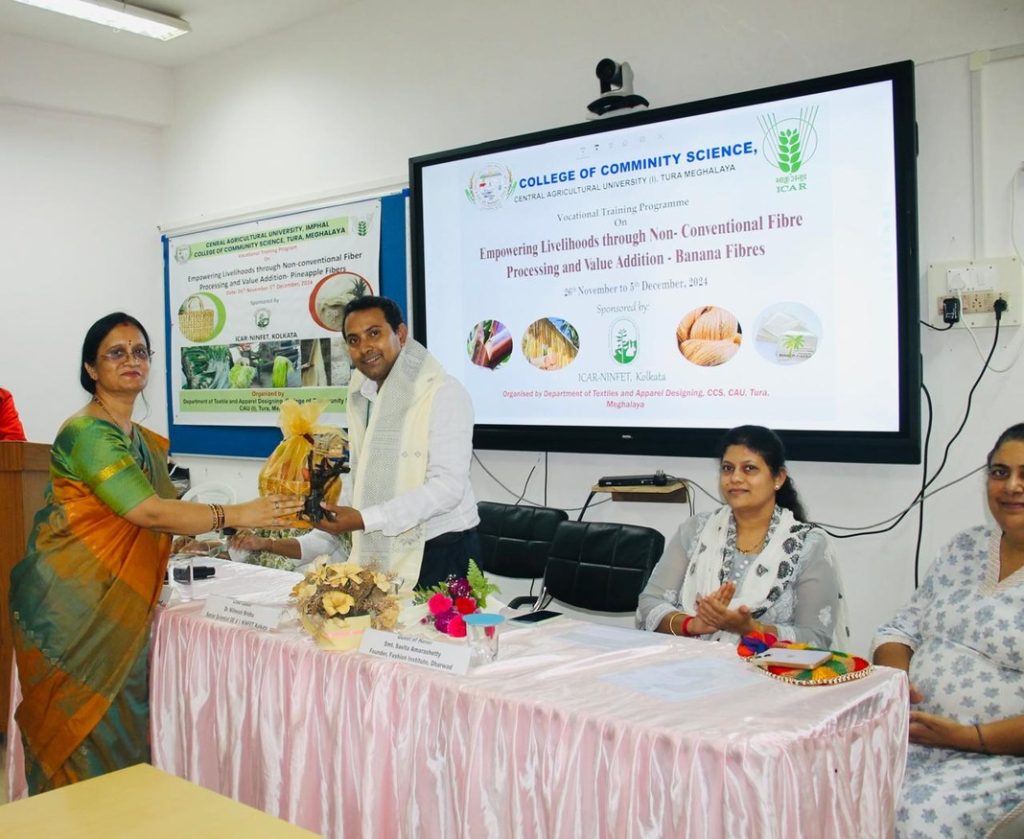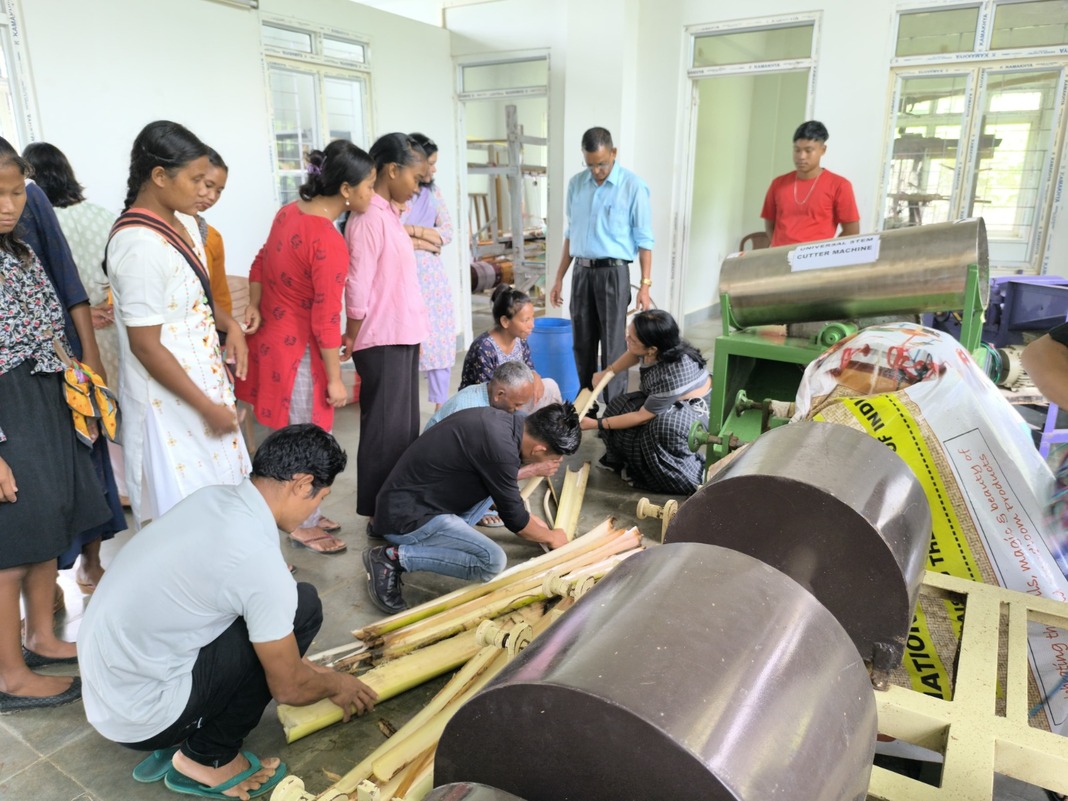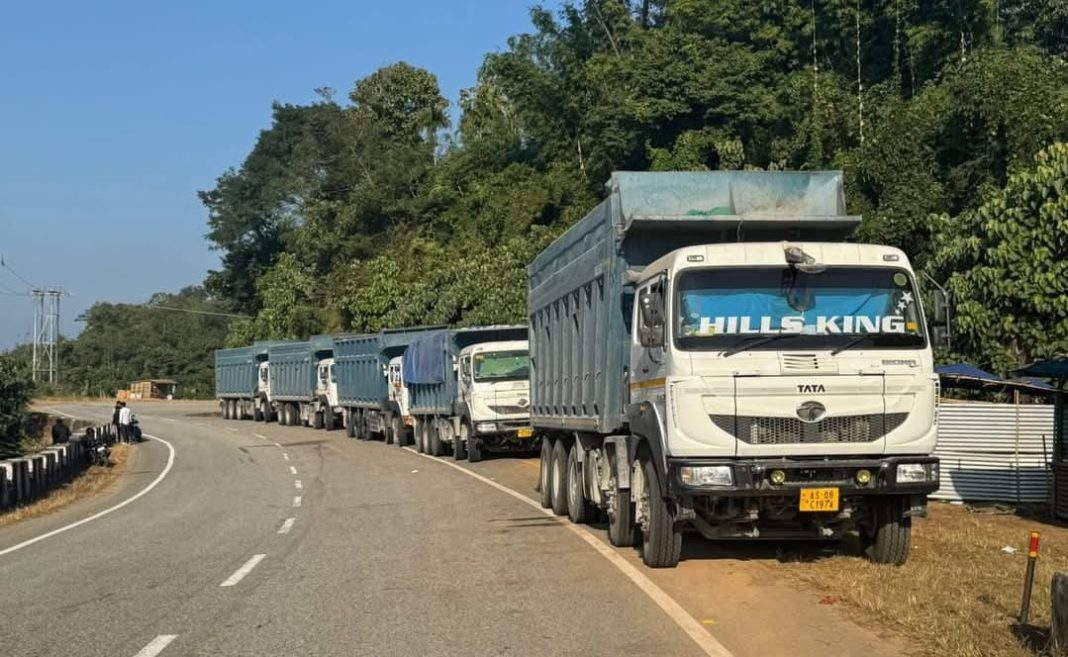ROOPAK GOSWAMI
Shillong, Dec 16: A quiet revolution is taking shape—not through conventional cash crops but through the humble threads of banana and pineapple fibres. What was once seen as agricultural waste is now a pathway to economic empowerment for local communities.
The Textile and Apparel Designing (TAD) Department of the College of Community Science(CCS), Tura, hosted two transformative ten-day vocational training programs on “Empowering Livelihoods through Non-Conventional Fiber Processing and Value Addition” recently.
These programs, sponsored by ICAR-NINFET(National Institute Of Natural Fibre Engineering and Technology), Kolkata, were not just about teaching techniques—they were about reimagining livelihoods. The training, guided by Dr Jyoti V. Vastrad, Dean, CCS, Tura, and DrAnupama Mishra, HOD, TAD, CCS, Tura, provided 46 eager participants with technical know-how and entrepreneurial skills essential for launching a new, sustainable fibre-based economy in the region.

The Fiber Revolution
For generations, banana and pineapple cultivation in the Garo Hills was primarily focused on fruit production. However, with the growing global demand for sustainable materials, attention has shifted to their fibres, known as PALF (Pineapple Leaf Fiber) and banana fibre. Unlike synthetic fibres that contribute to pollution, these natural fibres are biodegradable, renewable, and versatile. Their use spans from high-end textiles to eco-friendly handicrafts.
Participants learned to extract fibres from banana pseudostems and pineapple leaves—once discarded as waste—and process them into raw materials for textiles, ropes, mats, paper, and artisanal handicrafts.
“Banana fibre of the Wild banana pseudostem has a unique sheen. The coarser types can be suitably pulped and converted to Nonwoven sheets, that can replace the plastic-based packaging material” Jyoti Vastrad says.
She said the Pine Apple Leaf Fibre (PALF) of the Garo Hills seemed to be finer and could fetch demand in the apparel and accessory industries.
Under the expert guidance of Dr Nilimesh Mridha, Senior Scientist at ICAR-NINFET, participants discovered the science of fibre extraction, sustainable wet processing, and the art of creating marketable products. Practical demonstrations and lectures ensured that even first-time learners could master these skills.
“The infrastructure created here in the College of Community Science, for fibre extraction from Pineapple Leaf, banana pseudostem, Sisal leaf, flax fibre extractor, Jute/Ramie ribbon, and the multitude extractor, Fibre bleaching machine and the fibre opener will not only cater to the immediate teaching requirements but will be a one-stop Incubation centre for the Eco-friendly fibre based startups in the Garo Hills region” Jyoti says.

Turning Hands-on Training into Livelihoods
For most of the 46 trainees, the experience was eye-opening. The fibres they had once overlooked suddenly became threads of opportunity. “I had no idea we could create such beautiful products from waste,” said a participant, now inspired to start her fibre handicraft unit.
This hands-on training was more than technical instruction—it was a mindset shift. It introduced participants to the potential of self-employment, reducing dependency on seasonal agricultural income. The sessions also delved into financial literacy, with lessons on enterprise development and market linkages. By the end of the program, many participants expressed a desire to establish small home-based enterprises for fiber-based crafts.
The valedictory function brought further encouragement. Dignitaries like Dr. Shobha Nagnur, Former Dean of the University of Agricultural Sciences Dharwad, and Ms Savita Amarashetty, Founder of the Fashion Institute, Dharwad, lauded the initiative. They highlighted the global market’s growing demand for eco-friendly, handmade products and urged participants to see themselves not just as artisans but as entrepreneurs. “The world is moving towards sustainability,” said Smt. Amarashetty. “Your work can meet that demand while preserving the heritage of the Garo Hills.”
As small enterprises take root, the hope is to see “Made in Garo Hills” fibre products showcased on the shelves of eco-conscious markets worldwide. In the process, local women, farmers, and artisans will have new opportunities for self-reliance and economic stability.




